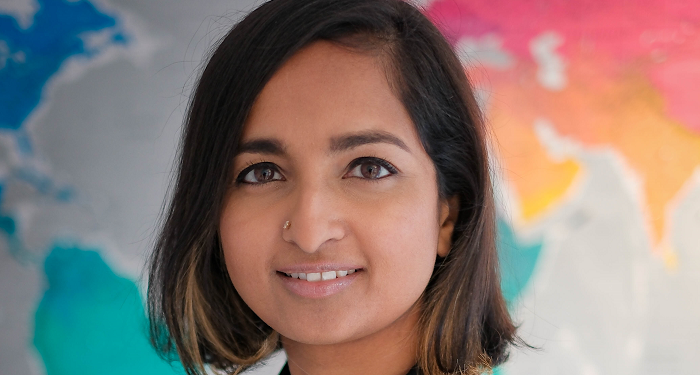[SPONSORED CONTENT]
Ensuring the quality of care globally mobile populations have access to and receive is critical to their overall health and wellbeing.
Dr Shoba Subramanian (pictured) of UnitedHealthcare Global offers a unique, hands-on clinical insight into the value of global medical treatments and assistance as well as trends that are redefining the future of healthcare delivery.
Tell us about your background and training in the medical sector and how your career has progressed to its current stage.
I initially chose family medicine because it provided me with a comprehensive knowledge base and the opportunity to serve the community.
During my training, I had the privilege of treating patients from diverse backgrounds and cultures.
Subsequently, I was honoured to receive a global health fellowship with the Maddox Jolie-Pitt Foundation in Cambodia, where I implemented health programs in rural areas.
Following this experience, I joined a prominent assistance company where I coordinated medical evacuations and repatriations while also serving as a flight doctor.
Leveraging my skills and experience in rural healthcare, I then took on the role of a remote topside doctor for the oil and gas sector.
Aspiring to be part of a larger organization, I joined UnitedHealthcare Global in 2017. My dedication to improving safety standards in medical transportation earned me a company award, leading to my promotion to medical director in 2019.
Today, I provide support to the global insurance and assistance sectors, contributing to the wellbeing of individuals worldwide.
Travel health is a unique sector of the medical discipline; what makes it different from other specialties?
The unpredictable nature of medical decision-making is influenced by various factors worldwide, ranging from natural disasters like hurricanes to political events such as elections.
As medicine is closely intertwined with logistics, it is subject to the geopolitical landscape at any given time.
In my practice of travel medicine, I integrate skills from various medical disciplines. This includes drawing knowledge from tropical medicine, occupational health, public health, and preventative medicine.
The focus is on identifying and mitigating specific disease risks, optimizing chronic conditions, and preparing for any acute deterioration.
What sets travel medicine apart is its recognition of the cultural influences on disease management, which helps drive better adherence to treatment plans.
Additionally, access to comprehensive and accurate healthcare intelligence is crucial in aiding clinical decisions.
At UnitedHealthcare Global, we have a dedicated team that monitors global health risks.
Aviation medicine is another fascinating aspect that combines preventive, occupational, environmental, and clinical medicine with an understanding of the physiological and psychological effects of flying on humans.
Many travelers are unaware that conditions in the air, such as altered cabin pressures, sound, vibration, and forces of acceleration and deceleration, can impact medical conditions.
My training enables me to consider these factors when determining the safest mode of clinical transportation for our members.
International business travel is known to present increased risks to employees. What measures can be put in place to help safeguard the health and wellbeing of its globally mobile employees and the increased risks associated with business travel?
Ensuring the appropriateness and safety of quality care is of utmost importance for all travelers. Trusting in a system of checks and balances, patients rely on healthcare providers to deliver services and perform procedures safely.
However, consistency in quality care varies globally, leading to skewed perceptions of where it is available.
At UnitedHealthcare Global, we prioritise the meticulous construction of our international provider network, placing a strong emphasis on due diligence, credentialing, and assessments.
- Due diligence involves conducting comprehensive assessments of known risks before engaging with third-party healthcare providers, particularly in unfamiliar and high-risk territories.
- Provider credentialing entails thoroughly vetting backgrounds and assessing current competency levels to ensure that providers are qualified to deliver services that meet international standards of care. This applies not only to hospitals and clinics but also to medical and emergency transport providers including air ambulances.
- Onsite clinical and logistics assessments involve either our team or one of our 30-plus in-market physician advisers physically visiting the provider to verify their capabilities.
When it comes to medications, making informed pharmacy decisions can be challenging even at home. Now imagine facing this challenge while stationed abroad with a language barrier and navigating a new healthcare system.
That’s why we collaborate with OptumRx to fill and deliver prescriptions, provide clinical management, and ensure the affordability of prescription medications where available globally.
About Dr Shoba Subramanian, BMBS, BMedsci, MRCGP, DRCOG, DipTropMed, DipLM, medical director, EMEA
Dr Shoba Subramanian is UnitedHealthcare Global medical director for the Europe, Middle East and Africa regions. She leads clinical teams in the UK, Europe, US and Philippines to help deliver safe medical transportation for assistance and insurance members. Shoba holds diplomas in tropical medicine, lifestyle medicine, and obstetrics and gynaecology, and has considerable knowledge of global healthcare systems – with expertise in travel health, aviation medicine and occupational health.
She is a former GP and advanced life support-certified doctor who has provided remote clinical care for 10 years.
Dr Subramanian is also a member of the Faculty of Medical Leadership and Health Management, the British Society of Lifestyle Medicine, the International Society of Travel Medicine and the European Aero-Medical Institute.






